When the headaches started again
you offered Ibuprofen and understanding
and drawn shades. When a train wreck
woke me in the middle of the night, you broke
out the Valium and Percocet and told me not to
cry because that makes it worse, then held me
till I fell into an ocean of quiet. Prescription bottles
line the bathroom sink like dominoes, knock one down
and watch me fall deeper. When the neurologist said,
we found something, you held my hand, a portrait of calm
in the fury of the storm building in my brain.
When the neurosurgeon photographed every slice
and angle of the lesion I would eventually name
Napoleon, you offered to shave your head.
I walk in the door and you know if it’s a night
for wine or for quiet darkness – you’ve learned
to read the foreign tongue of my grimaces, my sighs.
I’ve been a pincushion, needles placed into my skin
as delicately as a wreath placed upon a grave.
I’ve removed red wine, peanut butter, loud noises,
MSG, chocolate, bright lights and coffee from my diet.
I’ve been on so many different drugs
the pharmacists greet me by name.
I’m sorry our nights have become cluttered
with medicine that makes me so dizzy I trace the walls
to keep from falling, that make me unable to sleep
and escape this madness, that make me cringe
when you speak above a whisper.
I hope you know when I’m closed up
in our dark bedroom I’m praying to God
and Buddha and Allah and Darwin
that this ends soon. I’m scared you’ll buy flowers
for some other girl who doesn’t live
in the gutted carcass of herself.
I’m worried you’ll decide that the idea
of in sickness and in health is too much for you.
Baby, my head hasn’t stopped screaming for six months
but at least it’s screaming I fucking love you.
(This poem first appeared in Germ Magazine.)
 Courtney LeBlanc is the author of the chapbooks All in the Family (Bottlecap Press) and The Violence Within (Flutter Press), and a Pushcart Prize nominee. She has her MBA from University of Baltimore and her MFA from Queens University of Charlotte. Read her publications on her blog: www.wordperv.com. She loves nail polish, wine, and tattoos. Follow her on twitter: @wordperv and IG: @wordperv79.
Courtney LeBlanc is the author of the chapbooks All in the Family (Bottlecap Press) and The Violence Within (Flutter Press), and a Pushcart Prize nominee. She has her MBA from University of Baltimore and her MFA from Queens University of Charlotte. Read her publications on her blog: www.wordperv.com. She loves nail polish, wine, and tattoos. Follow her on twitter: @wordperv and IG: @wordperv79.

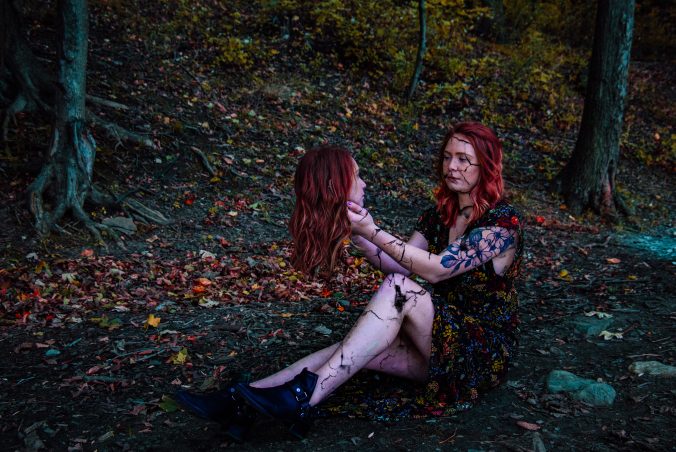
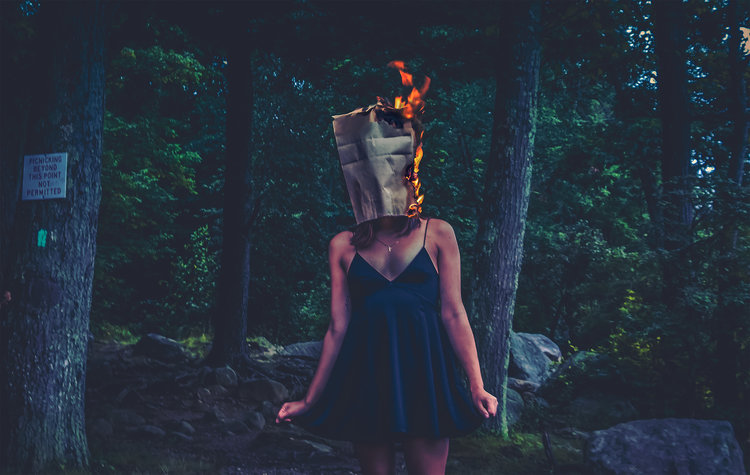

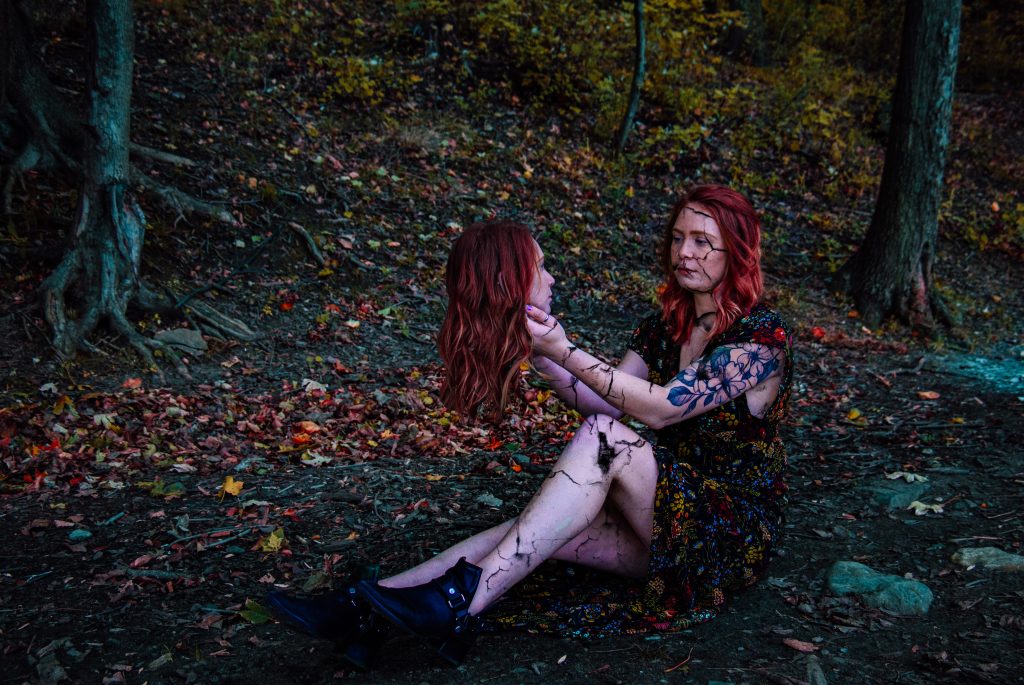
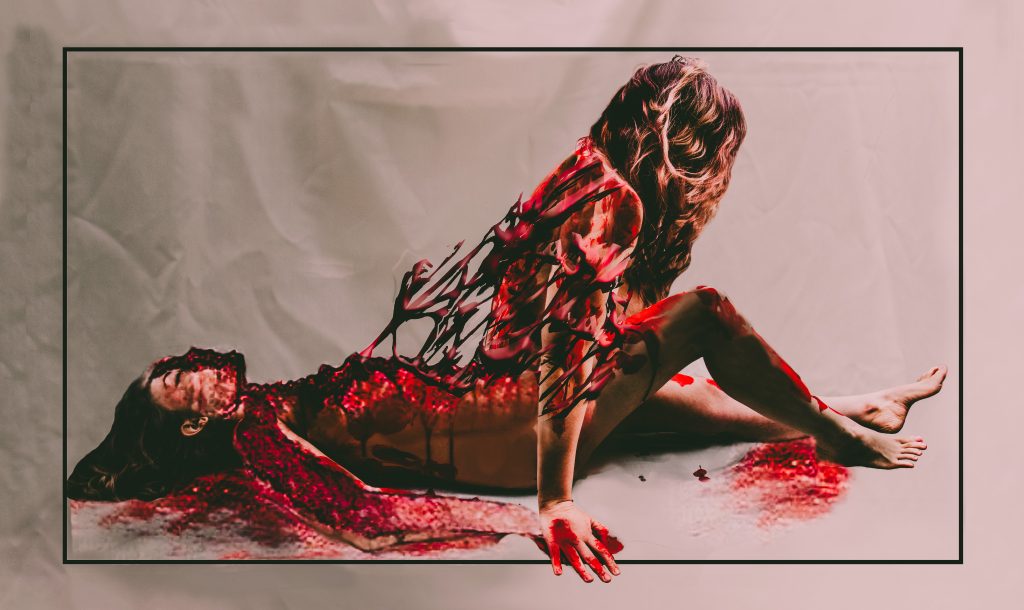
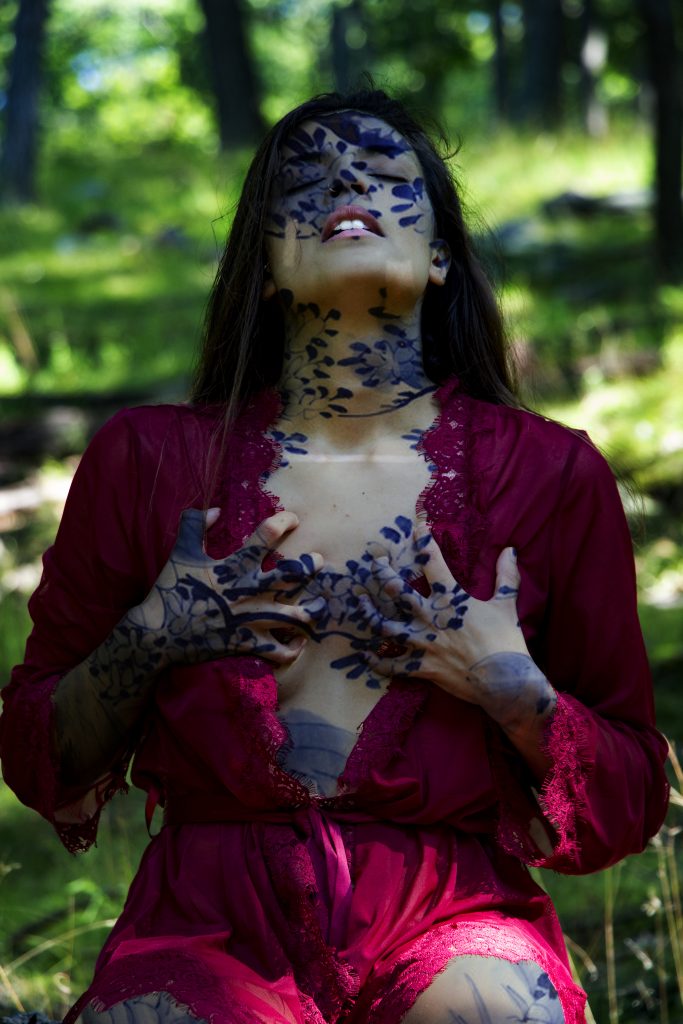
 Rachel is a 26-year-old photographer/digital artist from New York. She first ventured into the world of photography during high school around age 16 and continued on from there. She studied both film and digital photography through college and learned how to navigate Photoshop and the Adobe suite. During college and in the past few years since graduating, Rachel has honed her skills to create surreal images that depict feelings that stem from abuse, trauma, and mental illness. Her goal is to work on large scale projects concerning these issues to help victims and raise awareness for these issues. Find out more at
Rachel is a 26-year-old photographer/digital artist from New York. She first ventured into the world of photography during high school around age 16 and continued on from there. She studied both film and digital photography through college and learned how to navigate Photoshop and the Adobe suite. During college and in the past few years since graduating, Rachel has honed her skills to create surreal images that depict feelings that stem from abuse, trauma, and mental illness. Her goal is to work on large scale projects concerning these issues to help victims and raise awareness for these issues. Find out more at 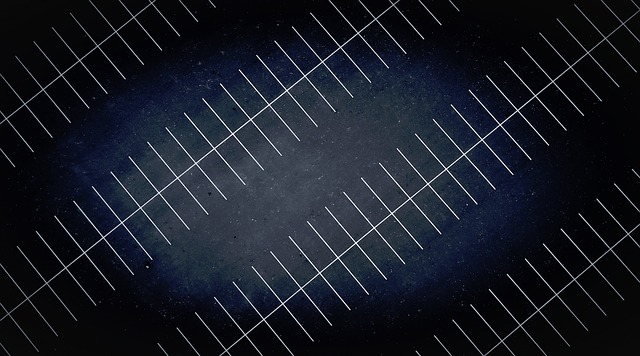
 Lillianna Kiel’s work has been published in the literary journal, Great Lake Review. She won the Georgia Barnes Award for Creative Writing in 2019. She studied Creative Writing and Digital Humanities at the State University of New York at Oswego. She requests that readers consider donating to support the
Lillianna Kiel’s work has been published in the literary journal, Great Lake Review. She won the Georgia Barnes Award for Creative Writing in 2019. She studied Creative Writing and Digital Humanities at the State University of New York at Oswego. She requests that readers consider donating to support the